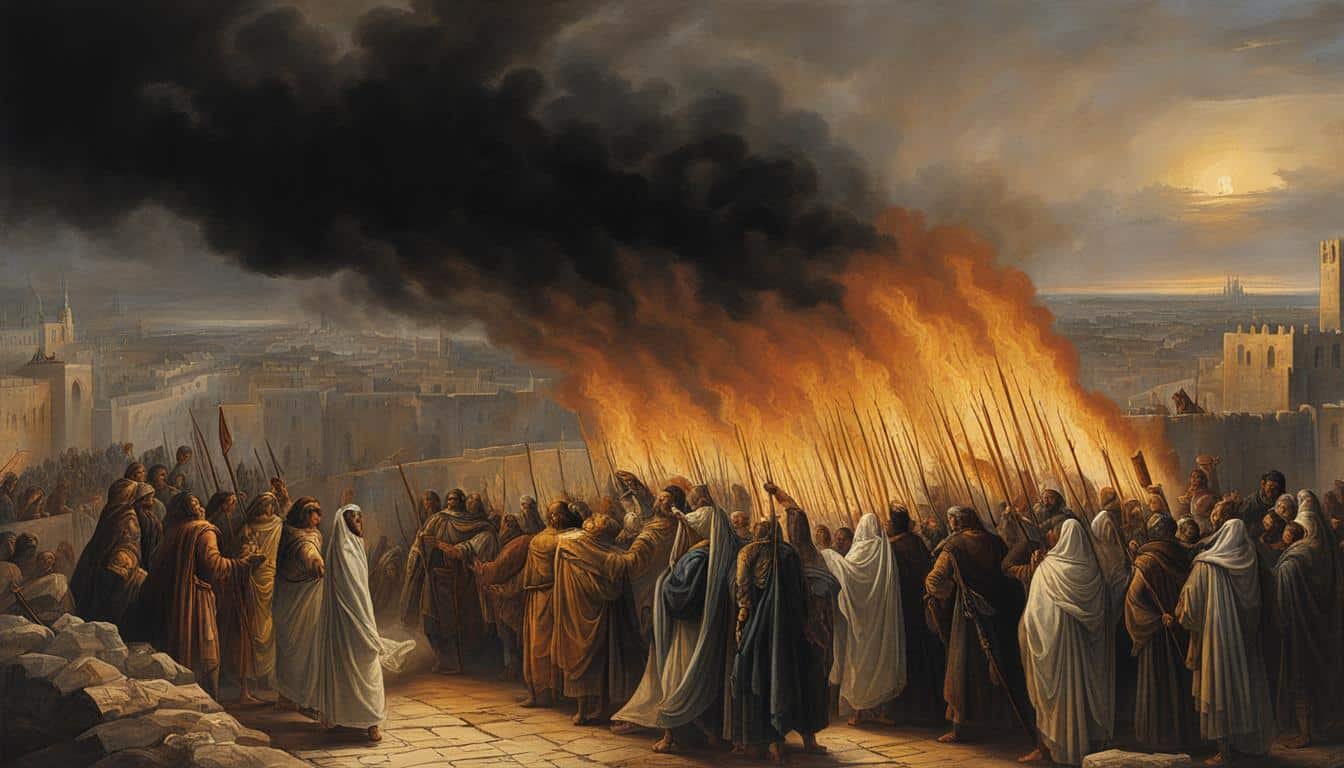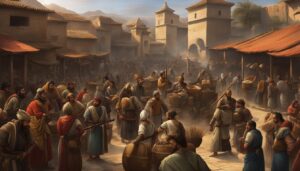
The historicity of the Bible is a topic of debate among scholars. When studying the books of the Bible, scholars examine the historical context of passages and the contrast between the descriptions of events and other historical evidence. The archaeological record provides sparse and indirect evidence for the Old Testament’s narratives as history. Biblical archaeology has both confirmed and challenged the Old Testament stories. The Bible exists in multiple manuscripts and canons, with variations in which books are included. The Bible should be treated like other historical sources from the ancient world. The term “history” in the Bible is dependent on social and historical context. The authorship of the Bible is a topic of discussion. The Bible stories of Noah and the flood, Moses and Pharaoh, and Job and the righteous sufferer have similarities to ancient Mesopotamian and Egyptian myths and legends. Understanding the historical context of biblical narratives helps to interpret the meaning of the texts.
Key Takeaways:
- Historical events influenced the narratives found in the Bible.
- Archaeological evidence supports and challenges the historicity of the Old Testament.
- The Bible is a collection of manuscripts with variations in canons.
- The historical context is crucial for interpreting biblical texts.
- Biblical stories have parallels with ancient myths and legends.
The Importance of Historical Context in Biblical Study
When studying the Bible, understanding the historical context is essential for accurate interpretation. The historical context provides valuable insights into the purpose and meaning of the text, enabling us to grasp the significance of the words to the original audience. In order to research the historical context effectively, it is necessary to examine the author, audience, and the historical, political, economic, cultural, and religious events of the time.
Exploring the historical context involves delving into commentaries, history books, and cross-referencing biblical passages. By doing so, we can gain a deeper understanding of the social and cultural atmosphere in which the biblical narratives were written. For instance, examining the historical context of the story in Luke 7 where Jesus dines with a Pharisee reveals the significance of the woman’s actions and sheds light on the social norms of that era.
“Researching the historical context of biblical narratives is like peering through a window into the past. It allows us to see the world as it was and helps us to accurately interpret and apply the teachings of the Bible to our lives today.”
By carefully considering the historical background, we can avoid misinterpretations and ensure that our understanding aligns with the intended meaning of the texts. Historical context is truly the key to unlocking the rich tapestry of the Bible and gaining a deeper appreciation for its profound wisdom and teachings.
| Benefits of Understanding Historical Context in Biblical Study | How It Enhances Interpretation |
|---|---|
| Contextualizes the text | Enables accurate understanding of the original meaning |
| Provides insights into cultural and historical atmosphere | Clarifies societal norms, beliefs, and customs |
| Prevents misinterpretation | Avoids imposing modern perspectives on ancient texts |
| Highlights the relevance of the text | Helps apply ancient wisdom to contemporary life |
Parallels Between Biblical Narratives and Ancient Mythology
When analyzing biblical stories, it becomes evident that there are intriguing similarities between them and ancient myths and legends. These parallels suggest that biblical writers were influenced by the rich tapestry of mythical tales from the ancient Near East.
For instance, the biblical account of Noah and the flood bears resemblance to the Sumerian and Babylonian flood stories. The story of Moses and the Pharaoh in the Bible shares similarities with the birth legends of Sargon of Akkad. Additionally, the biblical tale of Job shares striking parallels with the Mesopotamian narrative of the righteous sufferer.
Furthermore, we can find similarities between biblical wisdom literature and teachings in ancient Egyptian texts. Proverbs and Ecclesiastes in the Bible reflect teachings found in ancient Egyptian literature, showcasing the cultural exchange and intellectual influences of the time. Moreover, the biblical psalm 104 shows resemblances to Pharaoh Akhenaten’s Hymn to the Aten, revealing connections between ancient religious hymns.
These parallels offer valuable insights into the cultural milieu in which the biblical texts emerged. They shed light on the interconnectedness of ancient civilizations and highlight the cultural influence and shared themes that transcended geographical boundaries.
FAQ
How did historical events influence biblical narratives?
Historical events and cultural context played a significant role in shaping the narratives found in the Bible. The stories were often influenced by the social, political, economic, and religious events of the time.
Why is the historical context important in biblical study?
Understanding the historical context of biblical texts is crucial for proper interpretation. It helps us grasp the original meaning and significance of the words to the audience they were written for, providing a deeper understanding of the text.
Are there parallels between biblical narratives and ancient mythology?
Yes, many biblical stories share similarities with myths and legends from ancient civilizations. These parallels suggest that the biblical writers were influenced by the myths and legends of the ancient Near East.








